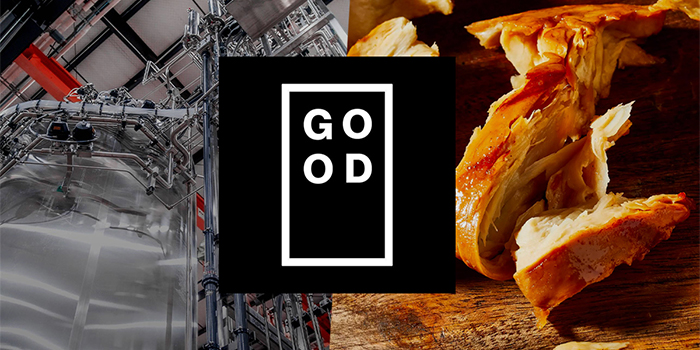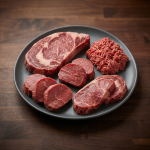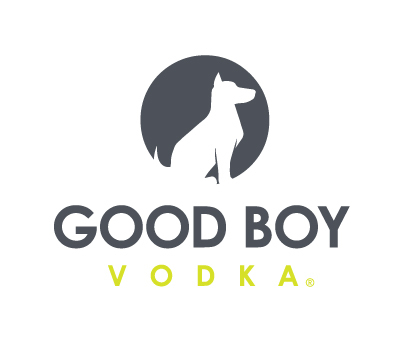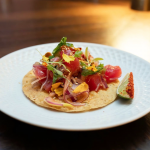GOOD Meat Receives FDA ‘No Questions’ Letter For Lab Grown Chicken

GOOD Meat Inc. has received the go-ahead from the U.S. Food and Drug Administration (FDA) to begin producing its cell-cultivated chicken product stateside.
The California-based company announced today that the FDA issued a “No Questions” letter, meaning it has no objections to the case the company made about its product’s safety for human consumption. GOOD Meat is the cultivated meat arm of Eat Just, which is also the parent to plant-based egg brand JUST.
“Today’s news is more than just another regulatory decision – it’s food system transformation in action,” said Bruce Friedrich, president of The Good Food Institute (GFI), in a press release. “Global demand for meat is projected to increase significantly by 2050. A few governments around the world are beginning to prioritize alternative proteins as a solution that accounts for this growing consumer demand while also achieving national climate and development goals, but far more need to follow suit.”
Currently sold in Singapore, GOOD Meat remains the only cell-cultivated animal protein available in a commercial product, debuting on restaurant menus after receiving initial approval from The Singapore Food Agency (SFA) in 2020. Late last year, the product became available for purchase at its first retail outlet, Singapore’s Huber’s Butchery, by reservation only.
However, before GOOD Meat is served up on American plates, the company must secure additional regulatory approvals from the U.S. Department of Agriculture (USDA). Once the paperwork is settled, the cell-grown chicken plans to debut at an unnamed restaurant in Washington, D.C., run by José Andrés, a chef and humanitarian. Andrés is also on the board of GOOD Meat Inc., and is the owner of the José Andrés Group which operates 30 restaurants across the country.
In November, cell-cultivated competitor Upside Foods was the first company to receive FDA approval to begin selling lab-grown chicken, but has not yet launched the product for commercial use. For GOOD meat, retail availability could come on a much shorter timeline.
Armed with go-to-market experience from its Singapore launch, last May GOOD Meat announced a new partnership with ABEC, a engineered process solutions and service provider for the biotech industry, that would see the design and construction of “the largest known bioreactors for avian and mammalian cell culture,” according to a press release. Those bioreactors will live in GOOD Meat’s new U.S. production facility, which is set to house ten of the 250,000-liter steel containers and have the potential to produce 30 million pounds of meat annually. The company has not yet specified when the facility will be operational.
“GOOD Meat is among the visionary start-ups advancing the food sector with new methods of producing high-quality, safe products that will help to meet the growing demand for meat, poultry, and seafood through delicious, healthy, and sustainable food options,” said Robert Rankin, executive director at the Association for Meat, Poultry & Seafood Innovation (AMPS), in a press release. “AMPS Innovation members continue to work closely with government agencies to create a safe, robust, and transparent pathway to market for cell-cultured/cultivated meat.”
According to GOOD Meat, the regulatory approval process required extensive details on the consistency and scalability of its cultivation process, noting that it does not require antibiotics to maintain the safety of the product. The resulting chicken meat is “significantly cleaner” than conventional chicken, contains a high protein content, balanced amino acid profile and serves as a mineral source, the company claims in a release.
“For many years, I have advocated for innovative and equitable approaches by governments, civil society and the private sector to end hunger, reduce diet-related diseases and slow the effects of climate change,” said Dan Glickman, GOOD Meat Advisory Board member and former U.S. Secretary of Agriculture, in a press release. “Just as the United States has been a global leader in modernizing conventional food and agriculture techniques, it too can lead in the emerging alternative protein space. Today’s announcement is one such example.”


















